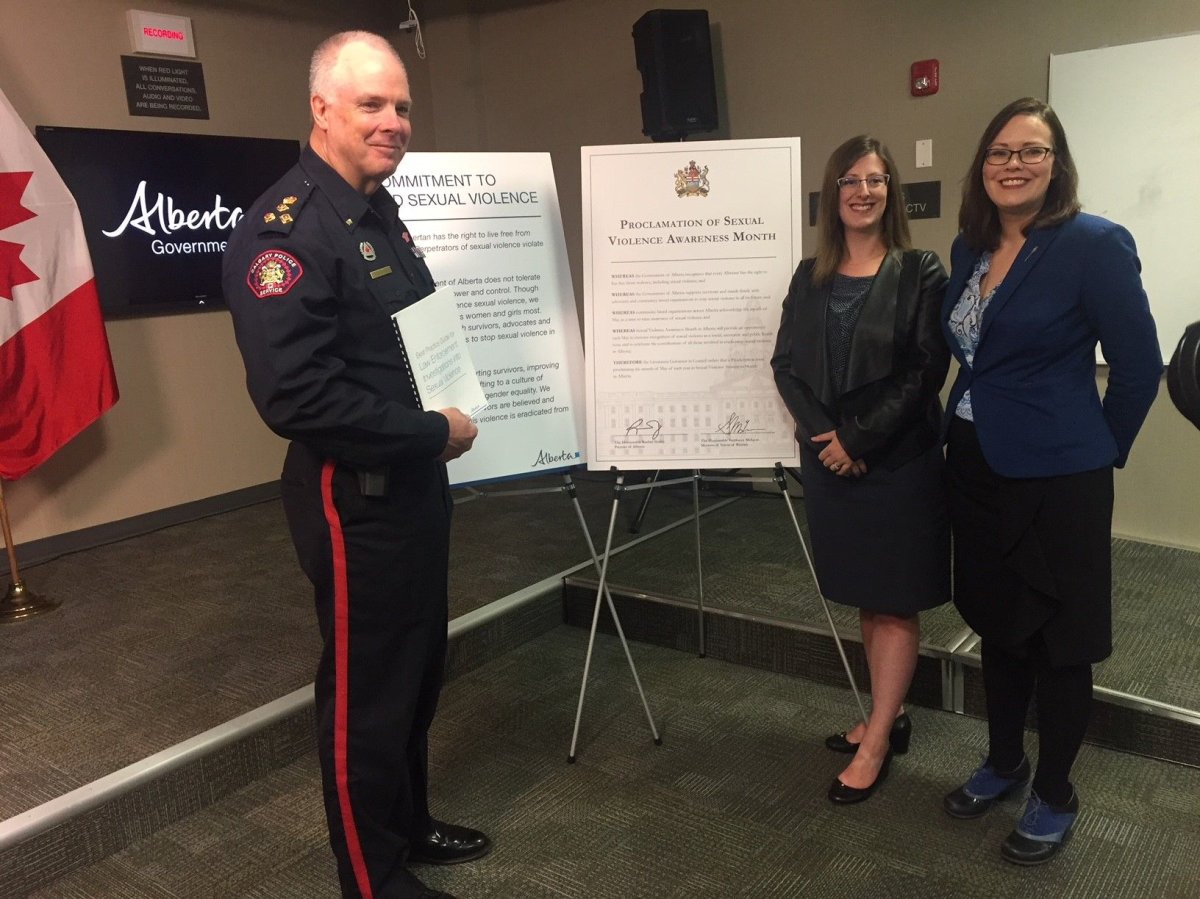Developed over a number of years, a new best practice guide will provide police across Alberta with up-to-date information about sexual violence and better ways to support victims.

The new guidelines are intended to recognize the effect that trauma can have on a sexual assault victim.
It’s said that only five per cent of sexual assaults victims come forward to police.
READ MORE: Alberta gives $8.1M to support services for sexual assault survivors
Alberta’s justice minister hopes the new approach will make victims feel more comfortable reporting.
“Ultimately we hope that that’s a consideration for survivors when they’re making their decision to come forward,” Kathleen Ganley said. “But it’s not intended to make anyone do anything.
“The intention is to just to say: ‘If you choose to come forward, you will be treated with the dignity and respect that you deserve.'”
Calgary Police Chief Roger Chaffin welcomes the guidelines for police, including a focus on finding appropriate follow-up emotional support resources for victims.
READ MORE: More detectives needed as #MeToo increases demands on Calgary Police
“It’s really a case of thoughtfulness, about being trauma-informed by being victim-focused, by making sure we have the ability to reach out beyond our own narrow view of sexual violence,” he said.
“Sometimes, if all you can do is approach it as a law enforcement tool, we will leave very many people unsatisfied because of the need to have ongoing consistent support.”
As CEO of the association of Alberta Sexual Assault Services, Deb Tomlinson, was part of the group that came up with the guidelines.
“These guidelines will help to ensure that survivors who make the difficult decision to report will receive a fair, sensitive and compassionate first response.”
READ MORE: Why legal experts say #MeToo is more than just a movement
She hopes the guidelines will lead to a consistent Alberta police response and an increased willingness of people to participate in the criminal justice system.






Comments